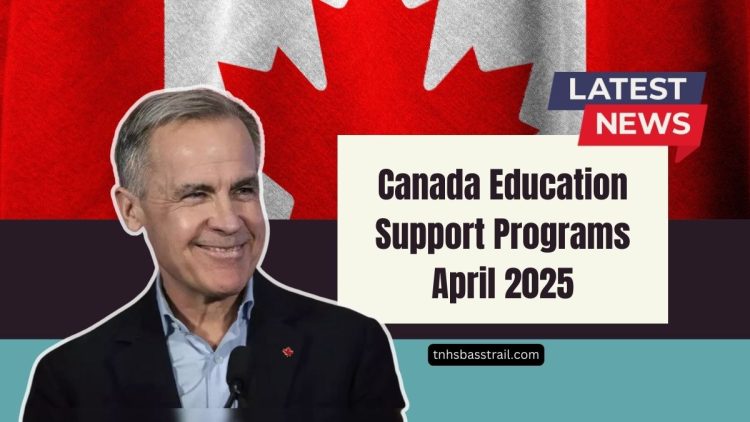With the rising cost of higher education in Canada, understanding how to access financial support is more important than ever.
In April 2025, the Canadian Government continues to offer a variety of education funding programs—including loans, grants, scholarships, and tax-advantaged savings plans—to ease the burden on students and their families.
This comprehensive guide provides the latest details on how to apply, who qualifies, and how to maximize your education benefits in 2025.
Canada Education Funding 2025
| Post Title | Education Funding in Canada – April 2025 Guide |
|---|---|
| Country | Canada |
| Funding Types | Student Loans, Grants, Scholarships, RESP, Tax Credits |
| Eligible Beneficiaries | Canadian students (full-time and part-time) |
| Administering Body | CRA (Canada Revenue Agency), Provinces, and Post-Secondary Institutions |
| How to Apply | Through school portals or official program websites |
| Official Website | www.canada.ca |
Canada Student Loans Program (CSLP)
The Canada Student Loans Program offers interest-free loans to eligible students while they’re enrolled in full-time studies. Repayment begins after graduation under structured repayment plans.
Eligibility Criteria:
- Must be a Canadian citizen or permanent resident
- Enrolled in an eligible post-secondary institution
- Demonstrate financial need
Application Process:
Apply through your provincial student aid office. Some provinces also offer separate loan programs in conjunction with CSLP.
Grants and Bursaries in 2025
Grants and bursaries are non-repayable forms of financial aid given based on need, disability, or academic merit.
Types of Grants:
- Full-Time Student Grant – Up to $6,000 per year
- Part-Time Student Grant – Amount varies by need
- Disabled Students Grant – For students with permanent disabilities
- Provincial/Territorial Grants – Additional local support
Students applying for loans are automatically considered for grants—no separate application is needed.
Scholarships and Awards
Scholarships are typically merit-based and reward academic performance, leadership, or community involvement.
Offered By:
- Universities and Colleges
- Federal and Provincial Governments
- Nonprofits and Private Donors
Popular Scholarships in 2025:
- Vanier Canada Graduate Scholarships – For doctoral students
- Canada Graduate Scholarships – For master’s programs
- Indigenous Bursaries – Funding specific to Indigenous students
Registered Education Savings Plan (RESP)
An RESP is a tax-advantaged savings account for future education expenses.
Government Contributions:
- Canada Education Savings Grant (CESG): 20% of the first $2,500 contributed annually, up to $7,200 lifetime
- Canada Learning Bond (CLB): Additional support for low-income families
Eligible Uses: Tuition, books, housing, and related expenses at recognized institutions.
Tax Benefits for Students
The Canadian tax system offers multiple education-related benefits:
- Tuition Tax Credit – Claim tuition fees to reduce taxable income
- Student Loan Interest Deduction – Deduct interest paid on government loans
- Education & Textbook Amounts (provincial) – Vary by province
These benefits can significantly reduce a student’s or parent’s annual tax burden.
Navigating the education funding landscape in Canada can be complex, but with the right knowledge and planning, students can unlock substantial financial support.
From student loans and grants to scholarships, RESPs, and tax breaks, April 2025 brings a robust network of assistance programs.
To make the most of these opportunities:
- Stay informed via your school’s financial aid office
- Apply early for scholarships and bursaries
- Use RESP and tax benefits to your advantage
Education should be a gateway to opportunity, not a financial burden—and with Canada’s extensive support programs, it doesn’t have to be.
FAQs
Can I get both a student loan and a grant in Canada?
Yes. When applying for a loan, you are automatically assessed for eligible grants.
Do RESP withdrawals affect my student loan eligibility?
RESP withdrawals do not disqualify you from receiving loans or grants but may impact your financial assessment.
How do I apply for a scholarship in Canada?
Scholarship applications are usually submitted through university portals, scholarship search tools, or program-specific websites.

